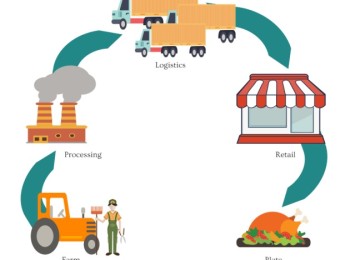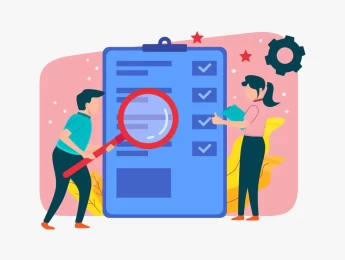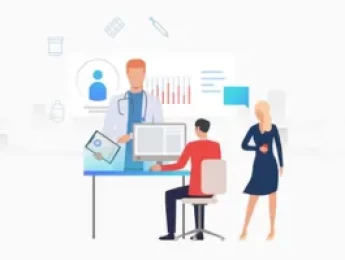The industrial environment is built on the use of heavy and electronic machines, and it is crucial for those involved to be completely competent in the processes and ways of control.
A thorough understanding of industrial processes works hand in hand with machine control. Understanding the methods of processes will allow for more accurate knowledge of the correct control devices and techniques to use to maximise machine potential.
Machine control should be a main focus when working. There are a vast amount of variables that can influence a machine's productivity, and understanding the use of different controllers and devices can be greatly beneficial. There are devices to measure temperatures, gas or liquid flow, pressure levels and more. These controllers can automatically manage variables within the machines to ensure they can work to their full potential.
Machine control is related to productivity and emphasizes safety. Many devices are created and installed to catch and rectify faults before they can cause damage to the process or machine itself.
Upon completion of this course, participants will be able to:
- Assess the principles of operation and control variables.
- Identify what common machines and processes will be found universally.
- Understand the importance of processing and machine control.
- Analyse the consequences of poor processing and machine control.
- Recognise the different components of a control system and define their role.
- Examine possible faults and create thorough safety measures as a preventative.
- Review different types of control methods.
- Understand the role of SCADA and PLC controllers in industrial processes and utility networks.
This course is designed for anyone who wishes to further their knowledge and skills related to industrial processing and machine control. It would be most beneficial for:
- Project Managers
- Project Engineers
- Mechanical Engineers
- Process and Planning Managers
- Asset Managers
- Production Managers
- Industrial Plant Supervisors
This course uses a variety of adult learning styles to aid full understanding and comprehension. Participants will be provided with devices and controllers to understand the different components and highlight their functions within processing and control.
Participants will be supplied with the best tools and equipment in the industry to conduct the learning exercises effectively. Combined with presentations, discussions, and practical demonstrations, participants will have ample opportunity to develop their knowledge and practical skills in a safe environment under professional guidance.
Day 5 of each course is reserved for a Q&A session, which may occur off-site. For 10-day courses, this also applies to day 10
Section 1: Motors, Generators and Speed Drives
- The principles of rotating machines.
- Different types of AC and DC machines and their benefits.
- The types of machine parameters - speed, torque, loading, efficiency, and power usage.
- The importance of controlling machine parameters.
- How stalling of motors occurs.
- Methods of motor start-up and braking.
- Necessary PPE. Safety requirements and precautions when working with motors.
- Installing and utilising variable speed drives (VSD).
Section 2: Monitoring of Process Variables
- The types of valves, flanges, tanks and piping systems commonly found.
- Creating process flow diagrams (PFD) and process & instrumentation diagrams (P&ID).
- The benefits of PFDs and P&IDs.
- Pressure and level control devices and applications - switches, transmitters, controllers and transducers.
- Temperature & flow control devices - thermostats, gate, globe, pinch and needle valves.
- Utilising a servomechanism to correct mechanism actions.
Section 3: Process Controllers
- Identifying and instrumenting process variables - static and dynamic transfer function.
- The advantages and disadvantages of using automatic controllers - sensors, actuators, control status and error.
- The difference between open loop and closed loop controllers.
- The difference between analogue and digital controllers.
- Analysing when it is ideal to use batch process control or continuous process control.
- Analogue signal conditioning.
Section 4: Electronic Controllers
- Operational amplifier circuits and the fundamental stages.
- On-off controller, proportional (P) controller and integral (I) controller.
- Measuring deviation with PI and PID controllers.
- The concepts of Schmitt trigger.
- Clipper and clamper circuits.
- Transistor operation and configurations - CB, CE and CC.
Section 5: SCADA and PLC Systems
- Defining SCADA and PLC.
- Understanding SCADA system structure - field devices, master station, RTUs and data processing.
- Using ladder logic programming to develop PLCs.
- Distributed control systems.
- The roles of ethernet and TCP/IP.
- SCADA protocols - DNP3, 60870, 61850.
Upon successful completion of this training course, delegates will be awarded a Holistique Training Certificate of Completion. For those who attend and complete the online training course, a Holistique Training e-Certificate will be provided.
Holistique Training Certificates are accredited by the British Assessment Council (BAC) and The CPD Certification Service (CPD), and are certified under ISO 9001, ISO 21001, and ISO 29993 standards.
CPD credits for this course are granted by our Certificates and will be reflected on the Holistique Training Certificate of Completion. In accordance with the standards of The CPD Certification Service, one CPD credit is awarded per hour of course attendance. A maximum of 50 CPD credits can be claimed for any single course we currently offer.
- Course Code IND14-101
- Course Format Online, Classroom,
- Duration 5 days










